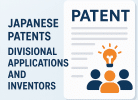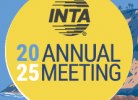The Japanese Society for Rights of Authors, Composers and Publishers (JASRAC) is known for being strict, even (some would say) overbearing with those who perform music that is covered by their copyrighting policies. JASRAC recently announced plans to charge 2.5% of lesson fees that musical schools collect if they use songs controlled by JASRAC. Some major schools, led by Yamaha, have pushed back with threat of legal action in the Tokyo District Court.
The Copyright Law Art. 22 says that the right to perform for the public belongs to the copyright holder. JASRAC asserts that music schools that teach musical performance with songs under its umbrella have been infringing upon the copyright of the composers. Yamaha and other groups have asserted that JASRAC is overstepping bounds of what should be considered performance, which is technically protected.
Music schools like Yamaha purchase materials through copyright holders for their teachers and students. It is the right to performance over which JASRAC has made its claims. Now, of course students and teachers are free to play music privately, and even recitals were considered acceptable as not infringing the copyright holder’s rights as recitals were held before specified, limited audiences. Of course, a license or permission would be required for other performances of copyrighted works. However, JASRAC asserted that not recitals but even playing its copyrighted songs in private lessons constitutes an infringement of its copyrights.
Certainly, JASRAC has a point that other people may hear the private lesson (for example, in the music school) and thus even such playing may be called a “performance.” And a performance is a performance, no matter how many people are listening.
On the other hand, a music school like Yamaha is not making illegal photocopies and not particularly seeking to let the public hear the music played in its classes. Patent rights may primarily serve business and financial security, but copyright is a loose and automatic right that aims to serve culture and the arts. Should it be given such power in the cultural life of a society, even though it receives no substantive examination? Is it right for JASRAC to demand performance fees even for educational demonstrations and practice?
The “Association to Protect Music Education,” including Yamaha Music Foundation and Kawai Musical Instruments Manufacturing Co., is planning to file a class action against JASRAC. Whether it ends in settlement or a court outcome, hopes would be that reasonable standards for copyright will clarified and that all involved parties would make a way forward to promote the arts for both composers and possible future composers.
(The information provided on this website is for informational purposes only and is not intended as legal advice. For questions or inquiries, please contact us for more information.)






